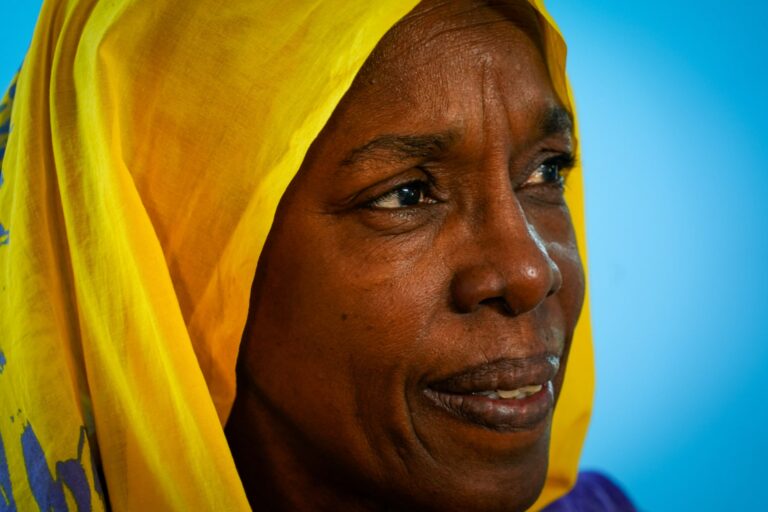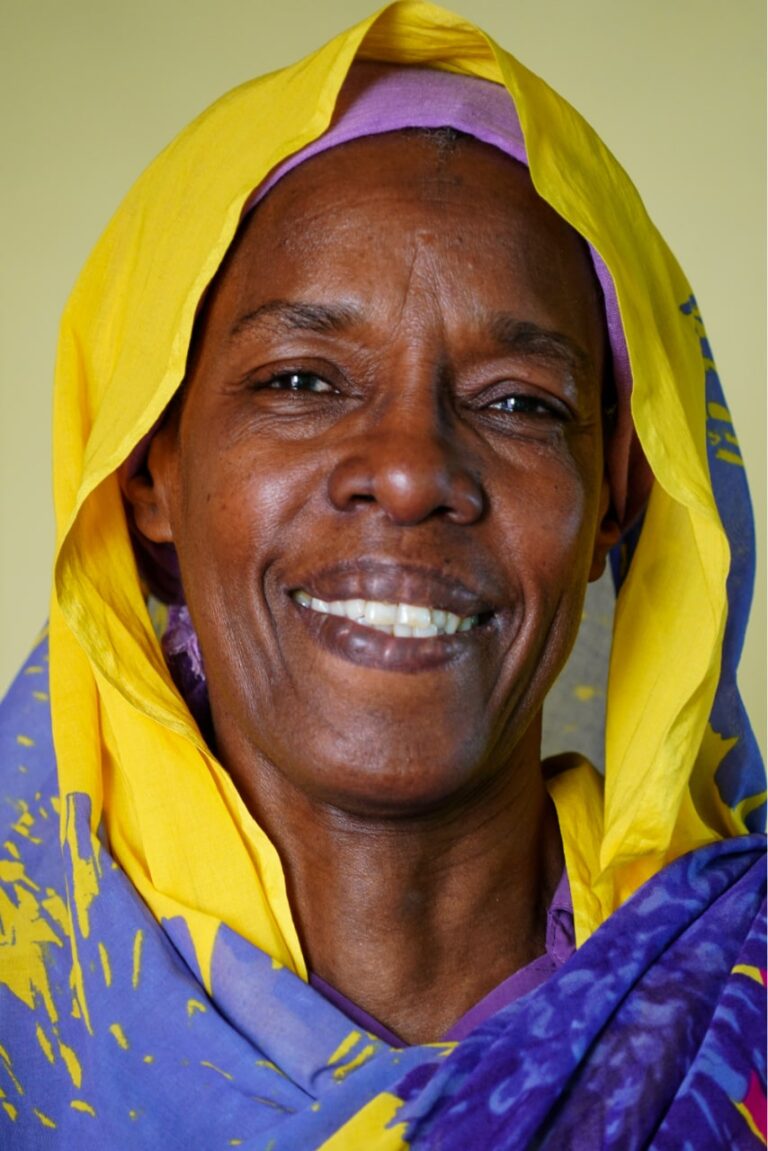Safa Elagib Adam Ayour
50, Activist

I was born and raised in Darfur in a small village. There was no electricity, few services, little education, and even fewer opportunities for girls.
You feel like you’re in a box – don’t do this, don’t do that. There were clubs for men but none for women. You were confined to the home – only home.
I became an activist as soon as I got to university, joining the Darfur Students Association in 1985. The students would go to help in humanitarian crises.
When displaced people arrived in Khartoum, we said we weren’t going to eat. We’d bring our rations to the displaced. I had been in Darfur — I knew what it was like. I knew people were digging holes to find ants to eat.
At that time drought had caused a catastrophe in Darfur. I decided I wanted to work in the humanitarian sector.

I wanted to give people what they needed. I began working with women, recipients of aid and quickly realised it was not enough.
The women might look like beggars — but they are not. They have dignity. They are producers and farmers. That’s what made me a feminist. That is when I began!
In 2005, I led the Darfur women in the Darfur peace negotiations. In 2009, I was awarded the prize for Peace and Human Rights in Bern, Switzerland – the first African woman to win the prize.
Peace to me means that when you go outside, you don’t see street children sleeping outside or a woman begging or dying while giving birth. Peace means human security.
I head up the coordinating committee of the Commission for Peace. I am fighting for women to be part of the new government.
